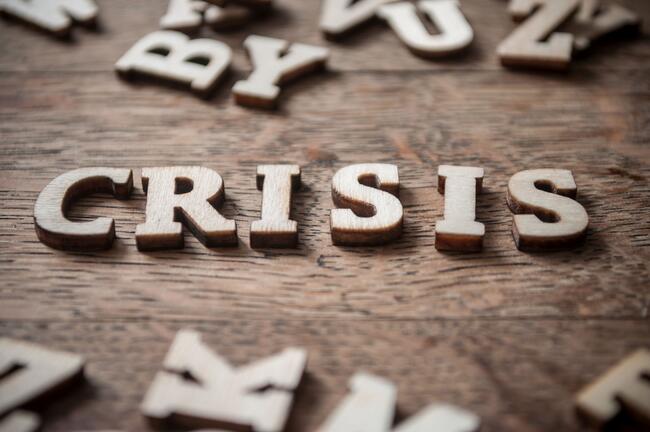You have /5 articles left.
Sign up for a free account or log in.

Neydtstock/iStock/Getty Images Plus
“Please tell us about a time when you supported a student in crisis. What did you learn?”
After years serving as a licensed clinical social worker in Army Special Operations, being my various units’ go-to person for behavioral health emergencies, advising commands on how to handle personnel crises, providing on-site interventions in austere environments and working on call for emergency room behavioral health evaluations, I had decided to apply to a new field: student affairs.
I had assumed my skill set and experience in crisis response in the U.S. Army would translate. In my first student affairs interview, I was asked the above question about crisis and answered with what I thought would be an effective but expected answer, walking the interviewer through a real-life example while elucidating the key decision points and skills. My example involved ethical dilemmas, on-the-spot decision-making with incomplete information and lessons learned. I picked a true story, anonymized out of respect to the soldier, and intentionally chose a situation that was complicated but not shocking or traumatizing.
Or so I thought.
I was about halfway through my anecdote when I could sense the energy of the room shifting. My interviewer had turned a bit pale, and his eyes were filling with tears. I cut my story short.
A moment of silence before he spoke.
“Wow. That is— Um. That’s the most awful thing I have ever heard,” he said.
He took a minute. He looked at his notes, shuffled through his papers. We sat there in continued silence.
I apologized. It is never a good sign when you have to apologize halfway through an interview.
I realized in that moment that perhaps crisis response means something different between fields, and there is a stratification in terms of what one may define as crisis.
When I ultimately landed in a different student affairs position, I found that the experience I had as a behavioral health officer in the military, learning from wise military leaders, and specifically my experience in emergency rooms, provided me with a distinct viewpoint on crisis response compared to many of my student affairs peers. In this new student affairs position, I also learned new skills and perspectives from my experienced student affairs supervisors as we faced several student crisis situations together.
While most colleges have crisis response protocols, very few spend time cultivating what I’ll call crisis response practical skills. Instead, these skills for how to manage a crisis within university protocol seem hard-won through earned wisdom and experience.
Established models like Robert’s 7-Stage Crisis Intervention Model and Psychological First Aid offer evidence-based methods by which trained professionals can stabilize individuals in crisis, covering areas including rapport building, crisis and danger identification, empathic support, short-term solution making, referral connection, and action planning. These models emphasize trust between the responder and student during these critical moments and are the foundation for effective intervention and meaningful assistance. However, it is also essential for student affairs professionals to have a strong set of practical skills for managing themselves, their team and the scene.
To this end, I describe some of my earned wisdom that may help center and ground those nonmedical professionals who have been designated as responsible for crisis response—a group including but not limited to resident assistants, student affairs professionals, deans and designated crisis response faculty. While there may be useful tips for all individuals working in education, the intended audience are those with student crisis included in their job description.
With that, I bring you this unofficial, ever-changing, hard-learned list of crisis response practical skills for nonmedical personnel.
Take a Grounding Breath
It is important that we remember we are reacting to the crisis. We are not in crisis. But let’s be honest: That is not how it feels when we are in the moment. Often our heart rates go up, time either speeds up or slows down, and we overshare or undercommunicate. It can all feel quite overwhelming. So, unless there is an immediate threat to life, limb or eyesight that we can reasonably thwart—pause … take a grounding breath. Even if you are power walking across campus while briefing the team, take a big, grounding breath before you enter the crisis situation. The student will benefit from the extra second you took. Start off grounded.
Communicate—and Never Worry Alone
Inform your team of a crisis at minute zero. Your team needs to be immediately made aware that a crisis is occurring, what the crisis is, the nature of your involvement and what follow-on action may happen.
Sometimes we don’t have time to share this information immediately, and often we don’t know all of this information right away. Any communication is better than no communication. A complete communication may look like a five W’s (who, what, where, when, what you need). An incomplete communication might be “on crisis call, more to follow.” At the very least, your team will know that they may need to support you in person—by handling communications or by covering things you cannot do because you are occupied with the crisis. An incomplete report is better than no report.
When I was working in the military, I had an instructor who used to say, “A first report is a false report.” For those receiving the report, keep in mind that your teammate is dealing with a crisis, that you need to remain ready to support and that either new or conflicting information may come your way.
As the situation develops, continue to communicate with your team as much as you can. This keeps others informed, helps you get a wider perspective on the situation and helps later for recordkeeping purposes or even for remembering what occurred. Don’t trust your memory. Rely on your team. Redundancy in communication is fine, as long as it is clear who is in charge and who has the final say. For example, if the campus police says they are coordinating with the mental health center, it is OK to tell one of your teammates to verify that and inform them what is happening. As therapists, one of our guiding phrases is to never worry alone—share.
Be Safe
Don’t be a hero; if you are not safe, get safe, and call the proper emergency services. Think about the swimmer who swims out into the ocean to try to help a potential drowning victim, only to get into a rip current and force the lifeguard to have to rescue two people. Be safe. No one will fault you for self-preservation.
Be a Nonanxious Presence
Be calm. As student affairs professionals, we are not emergency services. The police or the mental health team controls the overall response. Emergency medical services performs medical response. What can we do? We can exude calm confidence. Modeling calm will hopefully help others remain calm. Usually this means the student, but often this is our coworkers, police or EMS. If you are getting anxious, it may be best to tap out or find something helpful to do that is not making you anxious.
Know your signs—is it fast talking? Toe tapping? Anger? Loss for words? Snapping at someone? Learn your signs early so you can catch them before someone else does. In my military behavioral health work, I collaborated often with chaplains. One particularly adept chaplain would always remind the team to be the nonanxious presence.
Assess Where You Are Most Helpful
Assess the greatest need in the crisis and fill that need. Is it direct action Communication? Scene management? Standing by? Holding a door? Flagging down EMS vehicles? If you do not know what is most helpful, ask the police or whoever is managing the scene. If the answer is do nothing, do not be offended. Remember: The crisis is not about you.
Consider Secondary Effects
Always keep perspective. Sometimes we get so locked in to what is right in front of us we forget the larger picture. Are others unsafe because of what is occurring? Is this creating a disturbance? Whom will you have to follow up with after? What can you not do now that you need to delegate to a teammate?
Ask for Help
There is no pride to be found in a situation going south because you did not ask for help. Ask for help before you need it. Anyone on the student affairs or student support team should be happy to come help, even if it just means standing to the side in case you need them. Delegate tasks such as communication, crowd management and recordkeeping. Do not do it all. Do not do it alone.
There are some situations that are too intense. Tap out. There are some days when you cannot handle something you normally can. Tap out. There are some situations that last a long time and you are no longer performing at your best. Tap out.
When learning CPR, one of the first things you learn is that if there are two people available it is best when they take turns in order to maintain the quality of chest compressions. The same thing can be said here: It is easier to run a marathon as a relay rather than as a single event.
Consult
Ideally, all big decisions should be made in consultation with your immediate team as well as student affairs leaders, the mental health center, campus police or the designated emergency response personnel. There is no harm in consultation as long as you are not causing harm by waiting to consult. Others may have a different perspective, different level of authority or different options than you do on the ground. This requires that you know what resources are available and how to contact them. Do you have the police dispatch number? The dean’s number? Campus safety? Where do you have these resources? What is easiest for you? Putting them in your phone? Having them in your wallet? Delegating communication to someone who has more immediate access to needed resources than you do?
Make a Decision
Rarely are situations as black-and-white as we want them to be. Sometimes we have to be comfortable making a decision before we know all the information. This can be scary and nerve-racking—the phrase I learned in the Army is “the 80 percent solution.”
When confronted with uncertainty, just remember that unintentional inaction may be the boldest action you can take: Rather than avoid a decision, you are deciding that nothing needs to be done. Find comfort with the 80 percent solution and make a decision.
Keep Yourself Going
Crises can last a long amount of time. Even for short-duration crises, there is a large amount of follow-up that often occurs after the initial crisis throughout the night and in the following days. It is possible, in the short term, to run on adrenaline, but this is not possible or advisable in the long term. If a situation lasts a long time (as can be defined by you), remember to keep yourself going. Once when working on a big crisis situation in the military, I was struck by our commander pausing and reminding those of us in the room to hit the essentials: food, water, exercise. Also, take time to document, constantly, even if it is in a small notebook to be transferred later to electronic format. Your memory will get foggy within minutes. When situations take a pause, process—with your loved ones, by yourself or with your team.
Conclusion
In times of crisis, remember that you are human. The emotions stirred by witnessing others in desperation can leave a profound and transformative mark. Prioritize your own well-being—engage in coping strategies that resonate with you. Use these skills as a baseline, but find your own that work for you, your team, your institution and, most importantly, your students.



